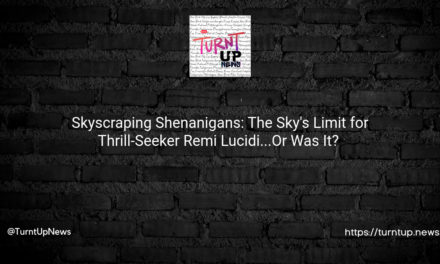🚫 Comedian Uncle Roger’s Social Media Accounts Suspended in China: Is Comedy a Crime?
TL;DR: British-Malaysian comedian Uncle Roger, known as Nigel Ng, has had his social media accounts suspended in China as authorities crack down on comedians who mock the government. The suspension comes after Ng posted a clip on western social media platforms, which garnered millions of views. In the clip, Ng’s character, Uncle Roger, jokingly praises a man from Guangzhou, China. The incident raises questions about freedom of expression and the boundaries of comedy in an authoritarian regime.
British-Malaysian comedian Uncle Roger, popularly known as Nigel Ng, has found himself in hot water as his social media accounts in China have been suspended. The move comes as part of a broader crackdown by Chinese authorities on comedians who dare to make fun of the country’s authoritarian government. Uncle Roger, with a significant following of 400,000 fans on platforms like Bilibili and Weibo, received the suspension notice citing a “violation of relevant laws and regulations.”
The suspension followed a clip that Ng had shared on western social media platforms a few days prior. The clip was a promotional video for an upcoming show and was originally posted on his Twitter account with the cheeky caption, “Uncle Roger about to get cancelled.” Later, he reposted it on YouTube, and the combined view count for both clips has surpassed a staggering 8 million.
In the video clip, which was taken from an undated standup show, Ng assumes his beloved character, Uncle Roger, and interacts with an audience member. When asked about his place of origin, the man proudly responds, “Guangzhou, China.” Ng, in jest, pulls a face and exclaims, “Good country! Good country!” Little did he know that this light-hearted exchange would land him in trouble with Chinese authorities.
The suspension of Uncle Roger’s social media accounts has ignited a wave of speculation and discussion among his followers and the online community. Many believe that the clip in question was the catalyst for the crackdown, considering its popularity and Ng’s remark about China. It raises the burning question: Should comedy be a crime in a society that values freedom of expression?
While comedy has long been a means of social commentary and satire, its power lies in its ability to challenge societal norms and political establishments. But when laughter becomes a threat to those in power, the lines between harmless humor and dissent become blurred. Uncle Roger’s situation forces us to reflect on the delicate balance between comedy, censorship, and personal liberties in a country with tight control over online content.
Chinese authorities’ action against Uncle Roger begs the question: Are comedians expected to toe the line and refrain from poking fun at the government, or is there room for irreverent humor even in a restrictive regime? It also raises concerns about the global reach of censorship, as social media platforms face pressure to comply with the rules and regulations of various countries.
What are your thoughts on Uncle Roger’s suspension? Should comedy be subject to strict regulations, or is it an art form that should enjoy the freedom to push boundaries and challenge authority? Join the conversation and share your perspective on the evolving relationship between comedy, freedom of expression, and censorship.
🔍 Original [Insert URL]




